
"In the second half of the eighties, I heard the duo of Charles Gayle and Peter Kowald at the Jazz Days in Novi Sad. A few years later, when Szilard Mezei and I met, and played music together, I told him a lot about the experience that ...
In Stock
Quantity in Basket: None
Log In to use our Wish List
Shipping Weight: 3.00 units
EU & UK Customers:
Discogs.com can handle your VAT payments
So please order through Discogs
Sample The Album:
Charles Gayle-alto saxophone, tenor saxophone, piano
Szilard Mezei-viola
Ervin Malina-double bass
Erno Hock-double bass
Istvan Csik-drums
Click an artist name above to see in-stock items for that artist.
UPC: 5904441617733
Label: Listen! Foundation (Fundacja Sluchaj!)
Catalog ID: 24/2024
Squidco Product Code: 35486
Format: CD
Condition: New
Released: 2024
Country: Poland
Packaging: Cardboard Gatefold
Recorded live during 15th Jazz, improvised music festival, in Magyarkanizsa, Serbia, on September 12th, 2009, by Lazar Zivanac.
"In the second half of the eighties, I heard the duo of Charles Gayle and Peter Kowald at the Jazz Days in Novi Sad. A few years later, when Szilard Mezei and I met, and played music together, I told him a lot about the experience that this concert had given me. I remember that the intensity, the density, the strikingly different quality of Gayle's music-making was beyond my comprehension, or even my measure. And then the world changed, and what seemed unattainable at the time became reality. A joint concert could be created. This was, of course, due to the importance of Szilard and his fellow musicians in improvisational music. He told me that during the negotiations, the only stipulation Gayle had was that he should receive a bottle of olive oil on arrival. This inspired Szilard's title. The titles are playful variations on olive oil, like a children's story, a poetic miniature. Szilard Mezei's scores are themselves works of art in their own right. That is how this recordingcame to be, as a beautiful, clear-cut score by Szilard Mezei. Thinking of the work of Szilard Mezei and Charles Gayle, I am reminded of Bresson's films, which are clean to the core. "There can be no relationship between an actor and a tree. They belong to two different universes. (The theatrical tree is only a simulation of the real tree)," he writes. This could be the difference between a musician and a Musician. Elsewhere, Bresson writes of the human voice: "His voice draws before me his mouth, his eyes, his face, his complete external and internal portrait, more perfectly than if he were standing there before me. The most accurate means of cognition is mere hearing." Charles Gayle's music is of transcendent origin, it is soul music, an Artaudian rite of passage and a spiritual. His life's journey is not that of a conventional jazz musician, but rather a modern-day mystical quest, and it is perhaps by understanding this that his music can be interpreted (if music is to beinterpreted at all). Gayle started as a professional musician. From 1970 to 1973, he was an adjunct professor of music at Buffalo State University, but grew tired of the responsibilities and left the university. He moved to New York to devote his life exclusively to music. He wanted to be independent of everything: music trends and living expenses. He gave it all up: he became homeless. Anyone moved by this romantic gesture should try spending three days on the street. Just as going out into the wilderness is not a romantic gesture, but a cruel and painful ordeal. Peter Kowald once heard Gayle playing in the streets, and it was thanks to him that he returned to the community and the stage after almost two decades. Gayle's music has no frills. No outer space and astral flight, no Eastern transcendence. There are no exotic landscapes and moods. There is no mimicry of the external. There is no past, or future, only inward travel in a moment made infinite. There is no other type ofjourney but inward travel. The forms of the moment. The silence of dawn. The oily pulsation of the city at night. Rage. Sadness. Joy. At other times, he says that music teaches you duty, diligence, work, and integrity. To work hard to express yourself. That's pretty much it, he says. He also used to play a lot of music on Wall Street to earn a few dollars a day to survive, from young managers, bankers and stockbrokers who lived like emperors of life, earning thousands of dollars a day. Meanwhile, Gayle worked quietly alongside them. His music was a breath of fresh air. Diogenes of Apollonia said that the essence of the world is pneuma, air. In other words, air is also intelligence, smell (evoked by the air surrounding the brain), and sight (the pupil's contact with the inner air). Gayle is a witness. He is the witness to the destruction of a civilisation. What he sees is the all-consuming Fire. For Szilard Mezei and his fellow musicians, the freedom of the moment and the unity of pureforms and mathematical precision are important. This unity is only apparently paradoxical, because the moment of making music rises above everyday time and becomes a celebration. It all points to faith and the aspiration to live and work according to the law of a higher order. In this way, Mezei's work is also transcendent. The meeting of two seemingly different worlds leads to tension, to an almost dramatic conflict. The meeting of two different worlds in the flesh. The stakes of this encounter are high, and you can feel the musicians are not playing a note inadvertently, the interplay of attention is condensed into a glowing magma. And on stage, Fire is born as a renewing, creative force. Chaos, out of which a face seems to emerge before it would explode."-Szabolcs Tolnai, film director
Artist Biographies
• Show Bio for Charles Gayle "Charles Gayle (born February 28, 1939) is an American free jazz musician. Initially known as a saxophonist who came to prominence in the 1990s after decades of obscurity, Gayle also performs as pianist, bass clarinetist, bassist, and percussionist. Charles Gayle was born in Buffalo, New York. Some of his history has been unclear due to his reluctance to talk about his life in interviews. He briefly taught music at the University at Buffalo before relocating to New York City during the early 1970s. Gayle was homeless for approximately twenty years, playing saxophone on street corners and subway platforms around New York City. He has described making a conscious decision to become homeless: "I had to shed my history, my life, everything had to stop right there, and if you live through this, good, and if you don't, you don't. I can't do the rent, the odd jobs, the little rooms, scratchin', and all that, no!" At the same time, this allowed Gayle to devote most of his time to playing music, although he often earned less than US$3 a day from busking: First of all, I played to play because I need to play. Second of all, the money, a dollar meant a lot to me at that time. Playing out there is obviously different than playing on a stage but that is so rich out there. It's such a whole 'nother world of playin'. I mean I used to walk from Times Square, for instance, all the way to Wall Street playin'. I could walk back and never stop playing. I didn't think about it as anything other than what it was. These were people and I wasn't overly concerned with what they thought. I was playing, I had to play. Also I had to eat some way and I'm not the type to put my hand out. I'd stand there playing with a coffee cup sometime and people would put money in my coffee [Laughs] and you don't get that on the stage. That's beautiful. When Gayle first set out on the streets, he did not imagine he would remain homeless as long as he did, although he estimates that this period lasted closer to fifteen years than twenty. In 1988, he gained fame through a trio of albums recorded in one week and released by Swedish label, Silkheart Records. Since then he has become a major figure in free jazz, recording for labels including Black Saint, Knitting Factory Records, FMP, and Clean Feed. He has also taught music at Bennington College. Gayle's music is spiritual, and heavily inspired by the Old and New Testaments. Gayle explains, "I want the people to enjoy the music and if it, in anyway can suggest something about the Lord, for their benefit, that would be first in my mind." He has explicitly dedicated several albums to God. His childhood was influenced by religion, and his musical roots trace to black gospel music. He has performed and recorded with Cecil Taylor, William Parker, and Rashied Ali. Gayle's most celebrated work to date is the album Touchin' on Trane (FMP) with Parker and Ali, which received the "Crown" accolade from the Penguin Guide to Jazz. Though he established his reputation primarily as a tenor saxophonist, he has increasingly turned to other instruments, notably the piano (which was, in fact, his original instrument) and alto saxophone. More controversially, he has sometimes included lengthy spoken-word addresses to the audience in his concerts touching on his political and religious beliefs: "I understand that when you start speaking about faith or religion, they want you to keep it in a box, but I'm not going to do that. Not because I'm taking advantage of being a musician, I'm the same everywhere, and people have to understand that." Gayle sometimes performs as a mime, "Streets the Clown." "Streets means to me, first, a freedom from Charles. I'm not good at being the center of attentionÉ. It's a liberation from Charles, even though it's me on the stage, it's a different person." In 2001, Gayle recorded an album entitled Jazz Solo Piano. It consisted mostly of straightforward jazz standards, and is a response to critics who charge that free jazz musicians cannot play bebop. In 2006, Gayle followed up with a second album of solo piano, this time featuring original material, entitled Time Zones." ^ Hide Bio for Charles Gayle • Show Bio for Szilard Mezei "Szilárd Mezei, born February 12th, 1974 in Senta, Serbia (then Yugoslavia) as a member of the Hungarian minority in the multiethnic region of Vojvodina. Completed his violin studies in Senta and Subotica and studied composition for four years at the University of Arts in Beograd under prof. Zoran Eric. As violinist, violist, double bass player and composer and in various formations (from duo to nonett) held many concerts: Senta, Kanizsa (the "Jazz, Improvisative Music..." Festival 1995, 1997, 1998, 2000, 2002), Subotica, Novi Sad (all Serbia, then Yugoslavia), Maribor (Slovenija), Szeged (Hungary, 'MASZK' Festival 1994, 1997), Budapest (Hungary, 'FONÓ' 1997), Gyor (Hungary, 'Mediawave' Festivals 1992, 1994, 1995, 2003, 2006, also 'Gyorfree Impro Workshops' 2003, 2004, 2006), Gyergyószentmiklós (Romania), Leverkusen (Germany, 'Leverkusener Jazz Tage' 1991), Düsseldorff (Germany, 'Düsseldorffer Altsadt Herbst' 1996 - special prize for improvisation), Copenhagen and Aarhus (Denmark, 'Magic Music Festival' 1999), Kluj-Napoca (Romania, 'Charta Minimumia Festival' 2000), Odorhei Secuiesc (Romania), Beograd (Serbia, 'Ring Ring Festival' 2002, 2005), Pécs (Hungary, 'Gassztro Fest' 2002, 'POSZT' 2006), Kishegyes ('Dombos Fest' 2003), Copenhagen, Aero, Aalborg, Aarhus (Denmark, 2003 - tour with the Creative Workshop Ensemble), Debrecen ('Debrecen Jazz Days' 2003), Klagenfurt ('CIK', Austria, 2004), London ('Klinker Nunhead', 2005), 'Cerkno Jazz Fest' (Slovenia, 2006, 2007), Avignon 2006, Zagreb, Graz , Warszawa (Music Academy), Budapest (Music Academy), Gyor, Subotica, Novi Sad, Debrecen , Vác 2007, Dunajska Streda (Are You Free? Festival), Beograd (Ring Ring Festival 2008, Lasciar Vibrare festival), Budapest (Újbuda Jazz festival 2008), Ljubljana, Krakow (Krakow Jazz Fall 2008, Graz (Stockwerk). His orchestra plays contemporary improvised music, mostly performing his own compositions. As a composer, Mezei is interested in exploring the relationship between improvisation and composition (similarly to Witold Lutoslawski's aleatoric and Anthony Braxton's creative music methods), incorporating elements of jazz and authentic folk music as well. As a young musician he followed the path of B.Bartók and Gy.Szabados. Mezei is also very actively involved in composing scenic music and plays authentic Hungarian folk music on genuine folk instruments (koboz and oud). Since 2001, Mezei is closely collaborating with choreographer Josef Nadj, director of the 'Centre Chorégraphique National d'Orléans' in Orléans, France. Their mutual project 'Les Philosophes' was selected theatre-piece of the year 2001 in France. The play was performed with great success at the 'Festival of Dance' in Cannes, France 2001, in Avignon 2002, in Brugge (Belgium - the capital of European Culture for the year 2002), in Orléans in October 2002, in Paris in May 2003, in Reggio Emilia (Italy), in Le Havre, in Nantes (France) 2004, and in London 2005. In 2006 they collaborated on a new project 'Asobu' (together with co-composer Akosh S.). This play was premiered at the Festival d'Avignon in 2006, then successfuly toured Europe and Japan. In 2003 Mezei was invited by the Creative Workshop Ensemble of Denmark to tour in that country, performing some of his compositions. In 2007 He was invited to play with The Fonda / Stevens Group. They held concerts in Magyarkanizsa, Zagreb, Graz, Oberwart, Cerkno, performing compositions by Michael Jefry Stevens, Joe Fonda and Mezei. His 'String Trio' was performed at the Festival of Contemporary Music 'Ondine '98' in Rovereto, Italy . The composition 'Trio for Flute, Piano and Percussion' won the 3rd prize at the 7th International Review of Composers in Beograd 1998 in the category of student-composers. He got the 'Sterija Prize' for the music of the theatre-piece 'Szelídítések' (Tamings). In 2004 Mezei won also the prize for music at the 54th 'Festival of Professional Theatres' in Vojvodina (for the theatre-piece 'Via Italia'). In 2009 He won the prize for composition in Theater Festival "Joakim Vujic, Sabac, Serbia for the music in theater-piece "Tempest". As a performer Mezei participated in many workshops of improvised and intuitive music (with Tim Hodgkinson in Budapest, William Parker in Gy?r, among others). Played so far with musicians/improvisors like Matthias Schubert, Tamás Geröly, Róbert Benk?, György Szabados, Mihály Dresch, Michael Hornstein, Tim Hodgkinson, Albert Márkos, Peter Ole Jörgensen, Jens Balder, Joe Fonda, Michael Jefry Stevens, Joelle Leandre, Hamid Drake, Herb Robertson, Frank Gratkowski, Charles Gayle. His writings on music were published in many periodicals in Former-Yugoslavia and Hungary. Mezei is a member of the Composers Association of Serbia and the Hungarian 'Gyorfree' Jazz, Improvisative, Contemporary and Folk Music Workshop Comitee. He lead the Szilárd Mezei Trio, Szilárd Mezei Quintet (/ Sextet / Septet / Octet / Ensemble), and plays in many formations (duo, trio, etc.) for improvising music (among others, in duet with György Szabados, and with His orchestra MAKUZ, The Fonda/Stevens Group, Burány Quartet, duet with Albert Márkos)." ^ Hide Bio for Szilard Mezei • Show Bio for Ervin Malina "Ervin Malina: Serbian bass player Ervin Malina, double-bass graduated from the Art Academy of Novi Sad (Serbia) in 2007.His ability to transform and identify with different music styles made him a valued member of a variety of ensembles on his musical journey. Great inventiveness and imagination align him with the most sought-after double bassists in Novi Sad, especially for performing improvised music, jazz. He is a regular member of the Vojvodina Symphonists Orchestra, as well as of the former Novi Sad Chamber Orchestra. He cooperates also with Olah Vince and his Earth-Wheel-Sky Band, which recorded the music for several Serbian national TV serials. As a member of the Serboplov ensemble of clarinet player Bogdan Rankovic, he has performed in many concerts and festivals in Serbia, Germany, Hungary... his cooperation with composer Boris Kovac brought him to Norway, Poland, Czech, Bulgaria, Japan... He also cooperates with the composer Mezei Szilard, in the Mezei Szilard Trio, and other ensemble formations, with whom he has recorded a number of CD albums as well as music for theatre performances. He has participated in the theatre performances of Josef Nadj: 'ASOBU', 'Length of 100 Needles' for which the music was composed by Mezei Szilard. He occasionally cooperates with Hungarian composer Szabados Gyorgy and his MAKUZ ensemble. As a member of the OSSA Jazz Quartet, he has a CD album and a great number of performances in festivals and clubs. He cooperates with different folklore ensembles (tours in Czech, Slovak, Romania, Hungarian, etc.). He is also guest on a new project of the composer Milan Nenin and Novi Sad band 'Tripcycle'." ^ Hide Bio for Ervin Malina • Show Bio for Istvan Csik Drummer and percussionist István Csík has been a member of the following groups: Boris Kovač & La Campanella, Boris Kovač & LaDaABa Orchest, Serboplov, Szilárd Mezei Ensemble, Szilárd Mezei International Ensemble, Szilárd Mezei Octet, Szilárd Mezei Quintet, Szilárd Mezei Septet, Szilárd Mezei Trio, Szilárd Mezei Vocal Ensemble, The Jon Hemmersam/Szilard Mezei Quartet ^ Hide Bio for Istvan Csik
12/3/2024
Have a better biography or biography source? Please Contact Us so that we can update this biography.
12/3/2024
Have a better biography or biography source? Please Contact Us so that we can update this biography.
12/3/2024
Have a better biography or biography source? Please Contact Us so that we can update this biography.
Have a better biography or biography source? Please Contact Us so that we can update this biography.
Track Listing:
1. Oila 08:46
2. Oilbird 08:19
3. Oilometer (Hommage a Thelonious Monk) 10:28
4. Two Oilways 23:01
5. Oilily 04:02
6. 1 Piper in 5 Inn 05:48
In Stock, Not Yet Cataloged
Improvised Music
Jazz
Free Improvisation
European Improvisation, Composition and Experimental Forms
NY Downtown & Metropolitan Jazz/Improv
Quintet Recordings
Search for other titles on the label:
Listen! Foundation (Fundacja Sluchaj!).


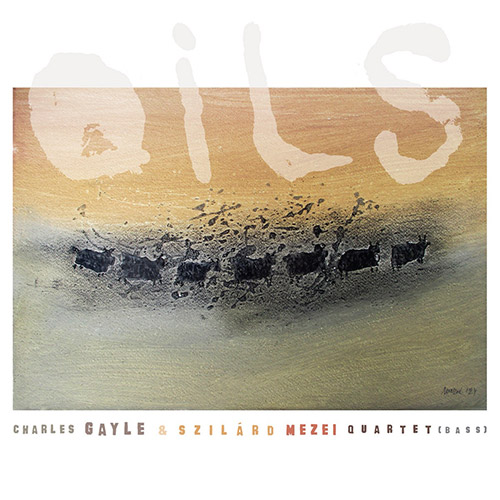



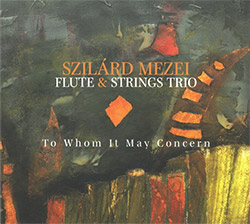




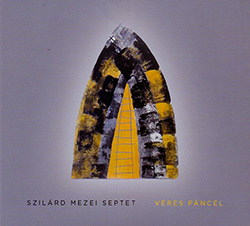

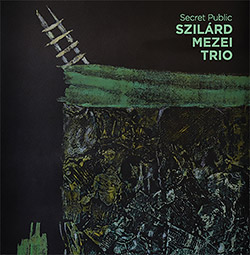
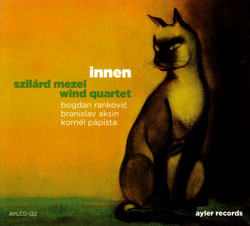
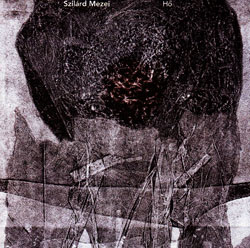
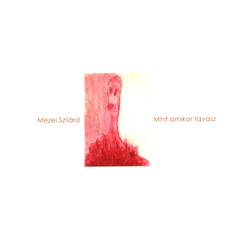
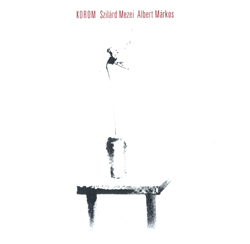

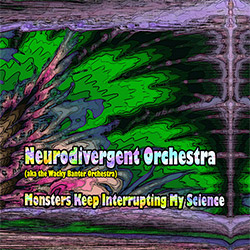

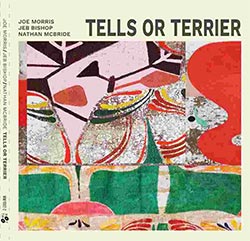
![Lonsdale, Eden: Dawnings [2 CDs]](https://www.teuthida.com/productImages/misc4/35480.jpg)
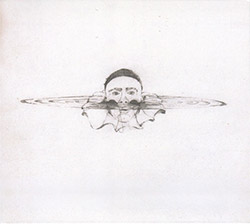
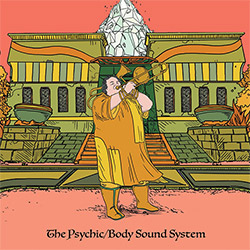

![Gush (Gustafsson / Sandell / Strid) + Guests: Gush 30 - Krakow 2018 [3 CD BOX SET]](https://www.teuthida.com/productImages/misc4/35526.jpg)



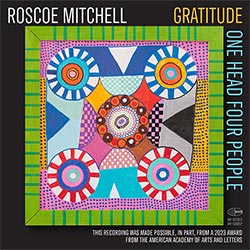
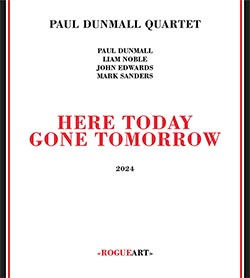
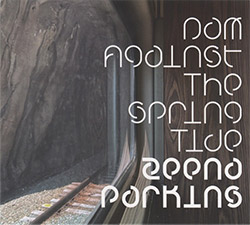
![Weston, Matt: Communism Has Appeared On The Scene [VINYL 2 LPs]](https://www.teuthida.com/productImages/misc4/35546.jpg)
![Coleman, Steve & Five Elements: PolyTropos / Of Many Turns [2 CDs]](https://www.teuthida.com/productImages/misc4/35476.jpg)
![Sorey, Tyshawn (w/ Diehl / Ragahavan): The Susceptible Now [DOUBLE VINYL]](https://www.teuthida.com/productImages/misc4/35477.jpg)


![Coltrane, John Quartet (w/ Tyner / Garrison / Jones): Impressions From Graz 1962, Revisited [2 CDs]](https://www.teuthida.com/productImages/misc4/35495.jpg)

![Guy, Barry / Ken Vandermark: Occasional Poems [2 CDs]](https://www.teuthida.com/productImages/misc4/34849.jpg)
![Novoa / Carter / Mela Trio: Vol.1 [VINYL]](https://www.teuthida.com/productImages/misc4/35236.jpg)


![Elephant9 : Mythical River [VINYL]](https://www.teuthida.com/productImages/misc4/34624.jpg)
![Evans, Peter (Evans / Eldh / Black): Extra [VINYL]](https://www.teuthida.com/productImages/misc4/35279.jpg)

![McPhee, Joe: Straight Up, Without Wings [BOOK]](https://www.teuthida.com/productImages/misc4/35454.jpg)
![Jeck, Philip: rpm [2 CDs]](https://www.teuthida.com/productImages/misc4/35455.jpg)




![Barker / Parker / Irabagon: Bakunawa [VINYL]](https://www.teuthida.com/productImages/misc4/35533.jpg)




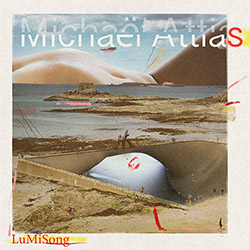
![Blaser, Samuel / Marc Ducret / Peter Bruun: Dark Was The Night, Cold Was The Ground [VINYL 10-inch]](https://www.teuthida.com/productImages/misc4/35492.jpg)












![DNS: Taking Big Bites Of The Khandas Three Cafes Deep [2 CDs]](https://www.teuthida.com/productImages/misc4/35334.jpg)




![Cleaver, Gerald: The Process [VINYL]](https://www.teuthida.com/productImages/misc4/34966.jpg)




![Alva Noto: HYbr:ID II [VINYL 2 LPs]](https://www.teuthida.com/productImages/misc4/35201.jpg)

![Baron, Derek / Luke Martin: Distinct and Concealed [CASSETTE + DOWNLOAD]](https://www.teuthida.com/productImages/misc4/35079.jpg)

![Lyle, Erica Dawn : Colonial Motels [CASSETTE + DOWNLOAD]](https://www.teuthida.com/productImages/misc4/35080.jpg)











![Sanna, Claudio: Compositori Sardi Contemporanei II [2 CDs]](https://www.teuthida.com/productImages/misc4/35317.jpg)







![Zurria, Manuel: Fame di Vento [3 CDs]](https://www.teuthida.com/productImages/misc4/35167.jpg)

![Granberg, Magnus / Nattens Inbrott / Skogen: Holde Traume, Kehret Wieder! [2 CDs]](https://www.teuthida.com/productImages/misc4/35038.jpg)
![Frey, Jurg: Outermost Melodie [2 CDs]](https://www.teuthida.com/productImages/misc4/35039.jpg)

![Pavone, Jessica: Reverse Bloom [VINYL]](https://www.teuthida.com/productImages/misc4/34895.jpg)




![Modney (Modney / Wooley / Gentile / Roberts / Pluta / Symthe / ...): Ascending Primes [2 CDs]](https://www.teuthida.com/productImages/misc4/34852.jpg)






![Elephant9 with Terje Rypdal: Catching Fire [VINYL 2 LPs]](https://www.teuthida.com/productImages/misc4/35355.jpg)
![Deerlady (Obomsawin, Mali / Magdalena Abrego): Greatest Hits [VINYL]](https://www.teuthida.com/productImages/misc4/34876.jpg)




![Haino, Keiji: Black Blues [2 CDs]](https://www.teuthida.com/productImages/misc4/35109.jpg)



![Surplus 1980: Illusion of Consistency [CD]](https://www.teuthida.com/productImages/misc4/35069.jpg)
![Staiano, Moe: Away Towards the Light [VINYL + DOWNLOAD]](https://www.teuthida.com/productImages/misc4/35037.jpg)



![Caveira (Gomes / Sousa / Abras / Ferrandini): Ficar Vivo [VINYL]](https://www.teuthida.com/productImages/misc4/34643.jpg)
![Gregg, J. J. / David Van Auken: Lunar Prairie [CD w/ DOWNLOAD]](https://www.teuthida.com/productImages/misc4/34611.jpg)

![Coultrain: Mundus [VINYL]](https://www.teuthida.com/productImages/misc4/32439.jpg)
![Mattin: Songbook #6 [VINYL]](https://www.teuthida.com/productImages/misc4/27317.jpg)
![Punkappella: Wake Up [7-inch VINYL]](https://www.teuthida.com/productImages/misc4/17519.jpg)
![Residents, The: WARNING: UNiNC.: Live And Experimental Recordings 1971-1972 [VINYL 2 LPs]](https://www.teuthida.com/productImages/misc4/31521.jpg)
![Coultrain: Phantasmagoria [VINYL]](https://www.teuthida.com/productImages/misc4/30142.jpg)
![Lennon, Sean Ono: Asterisms [VINYL]](https://www.teuthida.com/productImages/misc4/34517.jpg)

![Coley, Byron: Dating Tips for Touring Bands [VINYL]](https://www.teuthida.com/productImages/misc4/17906.jpg)

![Lost Kisses: My Life is Sad & Funny [DVD]](https://www.teuthida.com/productImages/misc4/lostKissesDVD.jpg)